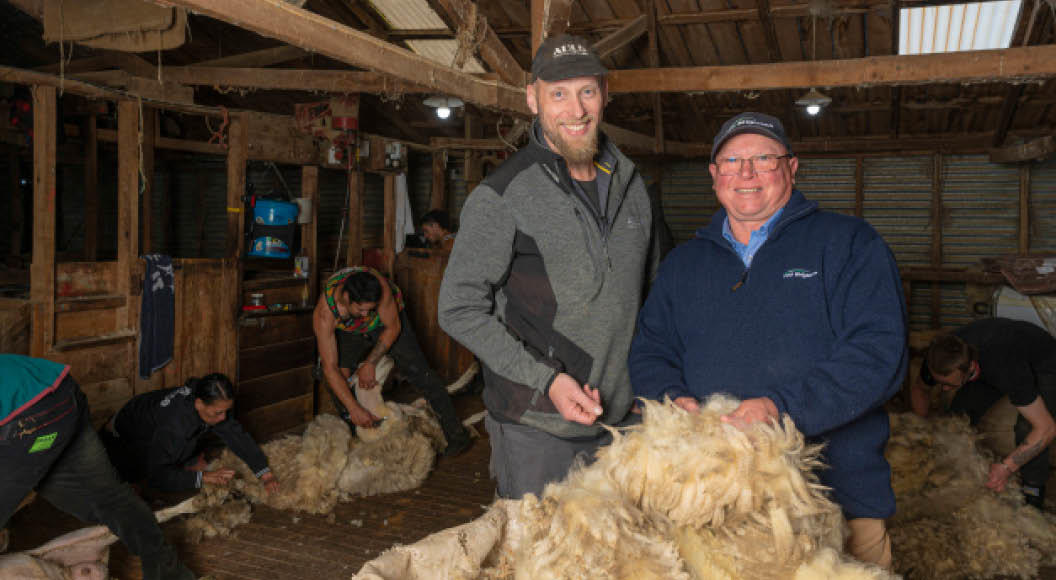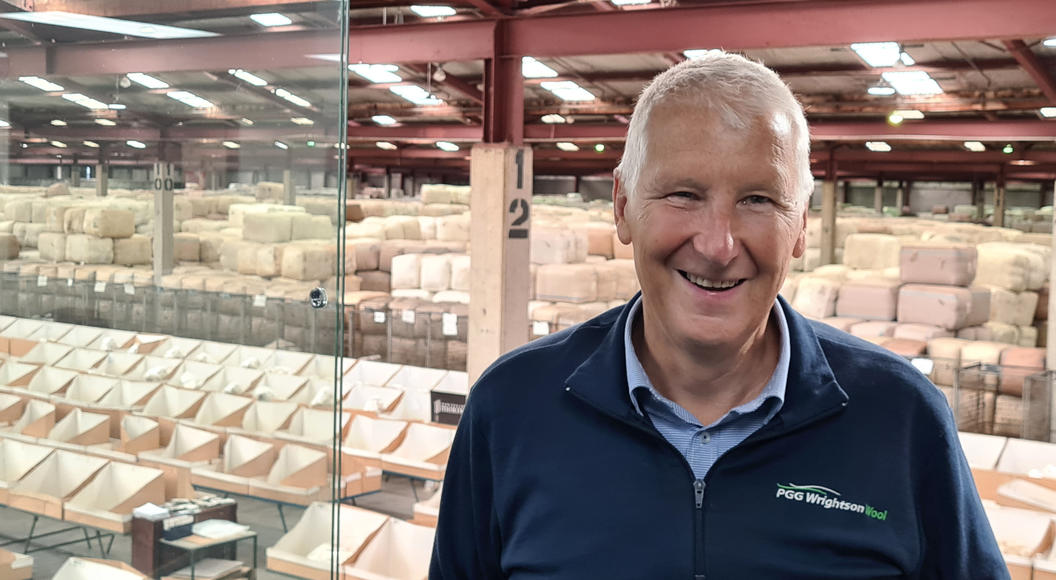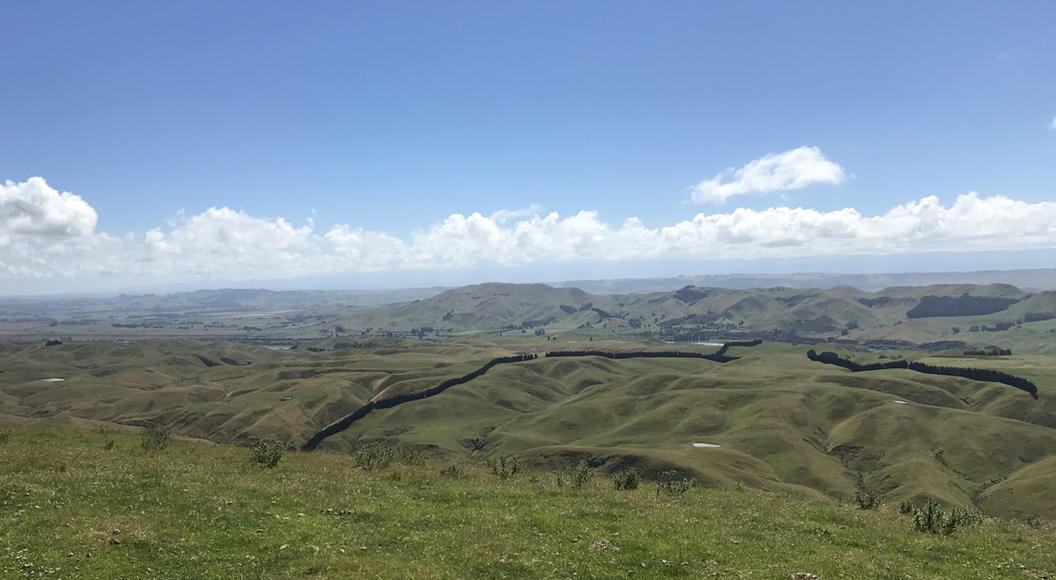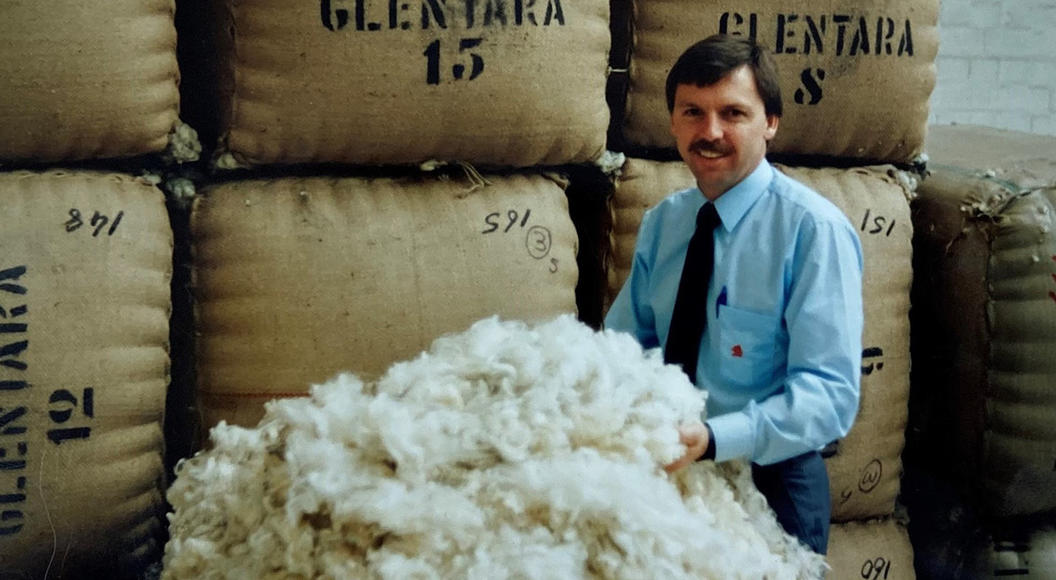
Wool Street Journal: Innovative new direction provides compelling origin story
Most farmers understand that a great story adds marketing appeal, giving premium value to previously primary produce. A long-established Southland farming family achieves exceptional results by putting that theory into practice.
Rob Auld is the third generation of his family to farm 200 hectare Scotts Gap, Western Southland property Broadlands Farm. Rob's grandfather Robert bought the mixed cropping farm in 1924, and in the late 1990s, it came to Rob and wife Toni via his parents, Wilton and Jan.
In 2005 Toni and Rob were on holiday in Oamaru when they came across the New Zealand Whisky Company in its historic precinct. After a tasting session, they were offered a look behind the scenes, which opened Rob's eyes.
"They had racks of casks from Wilson's Distillery in their bond store. I realised our farm had supplied malt barley used for the whiskey in some casks. Our farm has grown grain since 1883, and like any other farmer, we send tons of produce to market. When you see carpet that might have your wool in it, or chops in the supermarket that might have come from your lambs, that is always satisfying, although it doesn't have quite the same romance as whisky," he says.
Fast forward ten years, and in 2015, Rob was selected for a Rabobank sponsored executive development course, where after the first week, he and 30 like-minded colleagues each had ten months to research and present a proposal that would add value to their business.
"I remembered the whisky and used the course to work out whether it was just a dream or something we could realise.
"We presented the distillery proposal and had it peer-reviewed by business enablers. They liked it, which left me thinking, 'OK, it can't be that hard…'"
More detailed research followed, including several trips to Tasmania and the island's distilleries. Now, four years after commissioning their first still, the family owns one of the country's biggest distilleries and one of only a handful of farm distilleries in the world.
Rob is delighted at the response to Auld Distillery's 'grain to glass' or 'seed to sip' origin story, where the whole process happens on-farm, apart from malting, which is contracted to a Darfield company.
"We trace the product story from sowing the barley through to the whisky in the glass, though we had a stroke of fortune with the water we use.
"Southland water in our area is high in iron and manganese, which makes it notoriously bad for brewing, so we planned to use rainwater for our whisky. However, the Tasmanian brewers insisted that mineral-based water gives the whisky a full rounded, complex flavour and a more palatable spirit.
"That was a challenge that we didn't think we could meet. However, we then realised, unlike most other springs on a farm, the ones that flowed into our duckpond were never orange or oily, which is an indicator of iron and manganese levels. Our duckpond is filled from an eight-hectare wetland that sits in a big block of native species on the farm. When we had it tested, the results showed the wetland water, before the duckpond, couldn't be any more perfect for whisky! You can't make that up, so now we take what we need for production, and the rest of the wetland still fills the pond and gravity feeds the farm," he says.
Although the emphasis has turned solidly to the malted and unmalted grain grown on the farm, and the whisky production process that follows from that, wool still plays an important part in the Auld story.
"Around three-quarters of what we do is grain and the other quarter sheep. Having paddocks in the grass for part of the year makes good soil for grain growth, which in turn produces excellent pasture for stock, further adding to the story of the farm and our whisky," he says.
That story is what the Aulds aims to further capitalise on as production and the reputation of their whisky grows.
"Even during Covid and lockdowns, we have had plenty of enquiry for tours of the distillery and farm, which we aim to make more of in future. We are also offering a Foundation Harvest limited 100 cask run of single malt whisky made from our barley, harvested exclusively from the farm with the traceability right back to the paddock and everything the season influenced, which is selling well and will be matured at Auld Distillery's on-farm bond store for either five or ten years," he says.
For many years the Auld family has sold their wool through PGG Wrightson. Southland wool representative Lawrence Paskell has taken their product to auction and provided ewe and lambswool forward contracts.
"Being a part of what Rob and his family are doing with their business is a real pleasure. We are always on-farm when they shear to help ensure maximum value for their wool. Their farming practices are innovative in many respects, and I'm sure their vision, and the results they are achieving from their unique approach, will inspire many other farmers to try something different in their own businesses," he says.
Rob says many who visit the farm and tour the distillery are from a multi-generation urban background.
"You can see their practical farming experience is minimal. When they climb out of the car in our yard, we hear them say: 'We are actually standing on a farm!' Until you see that, you don't appreciate the disconnect between rural and urban people. In a small way, perhaps our distillery and its story can bring people with that background closer to rural New Zealand, and help mend that rift," he says.


